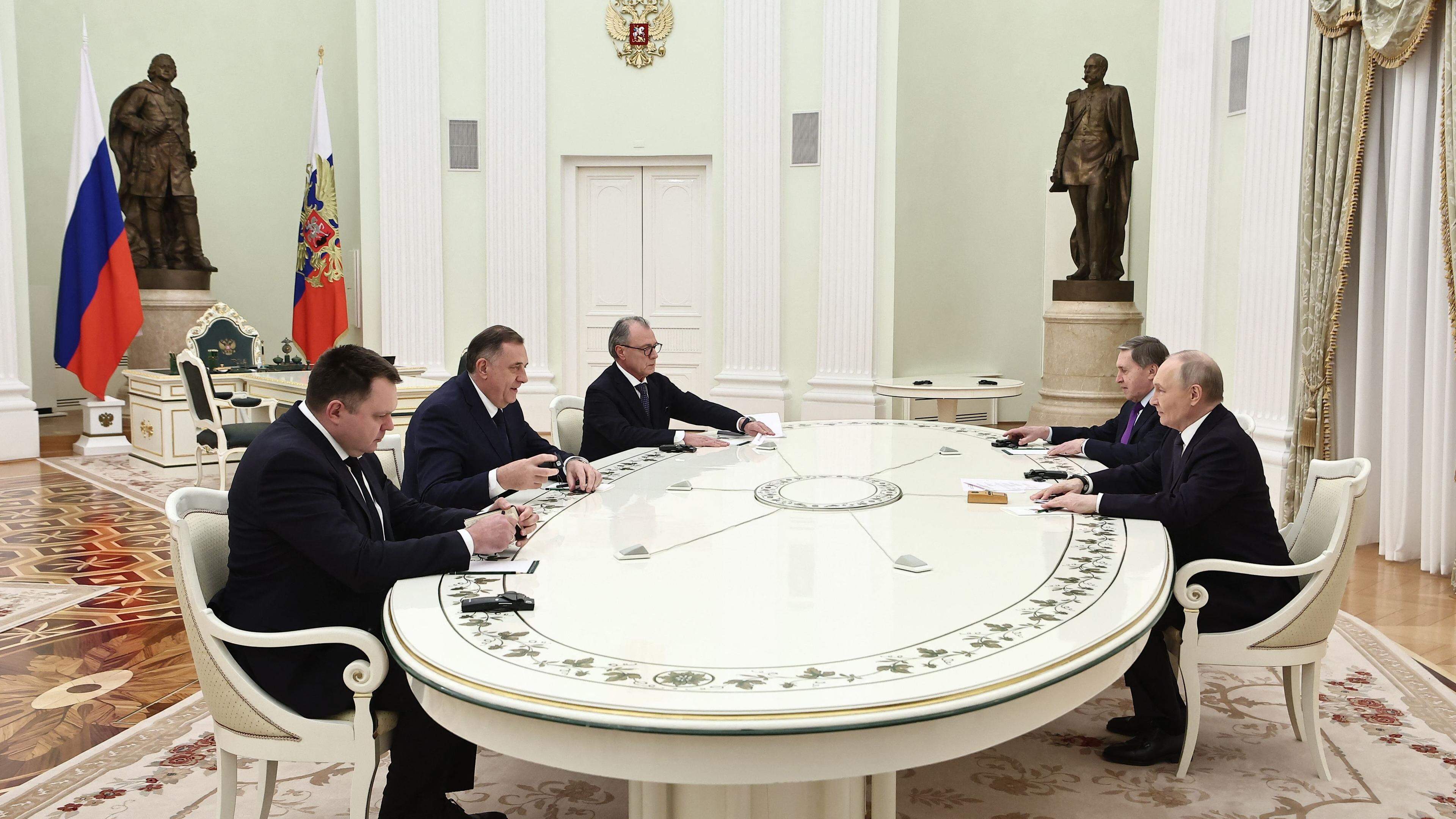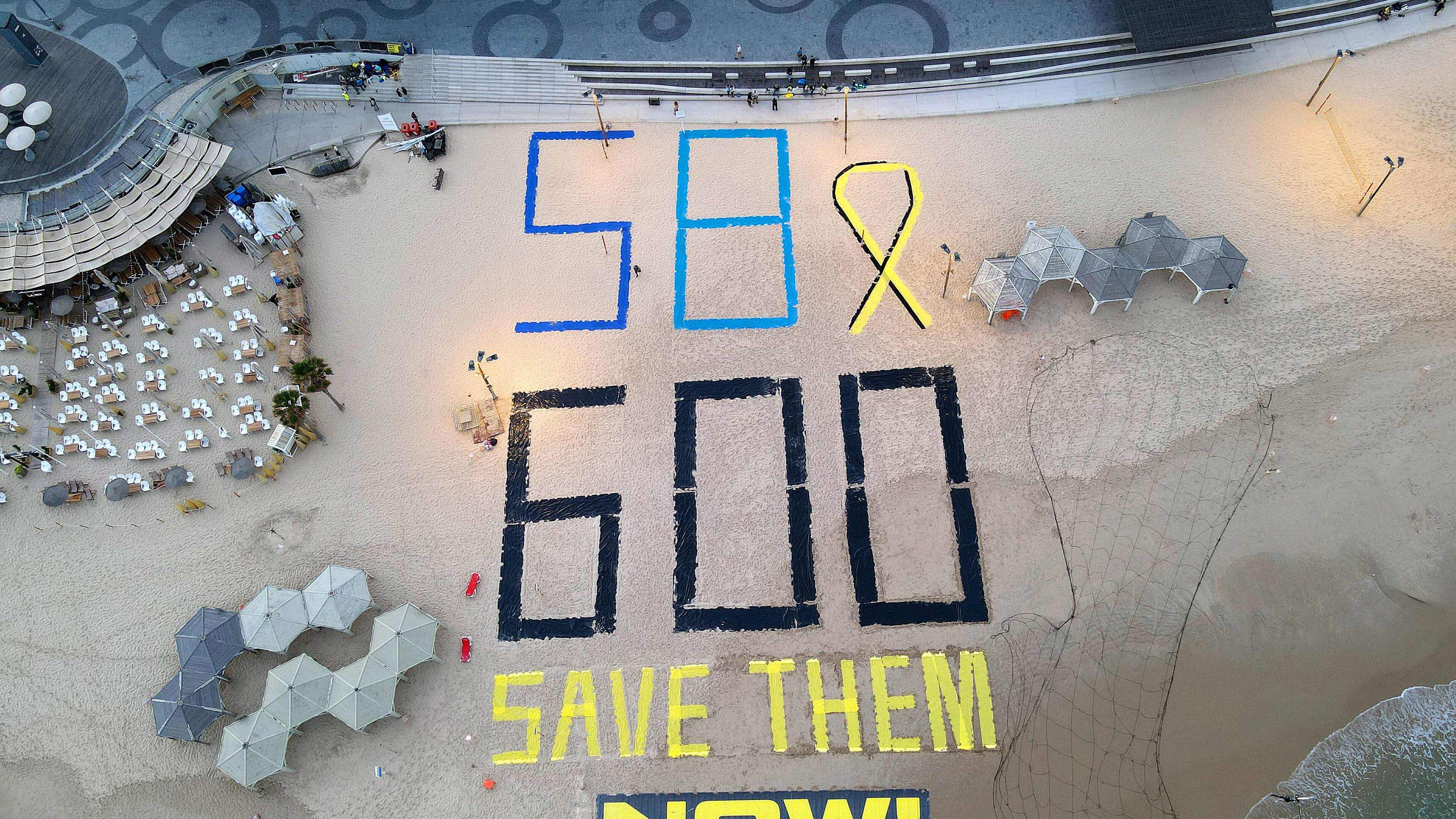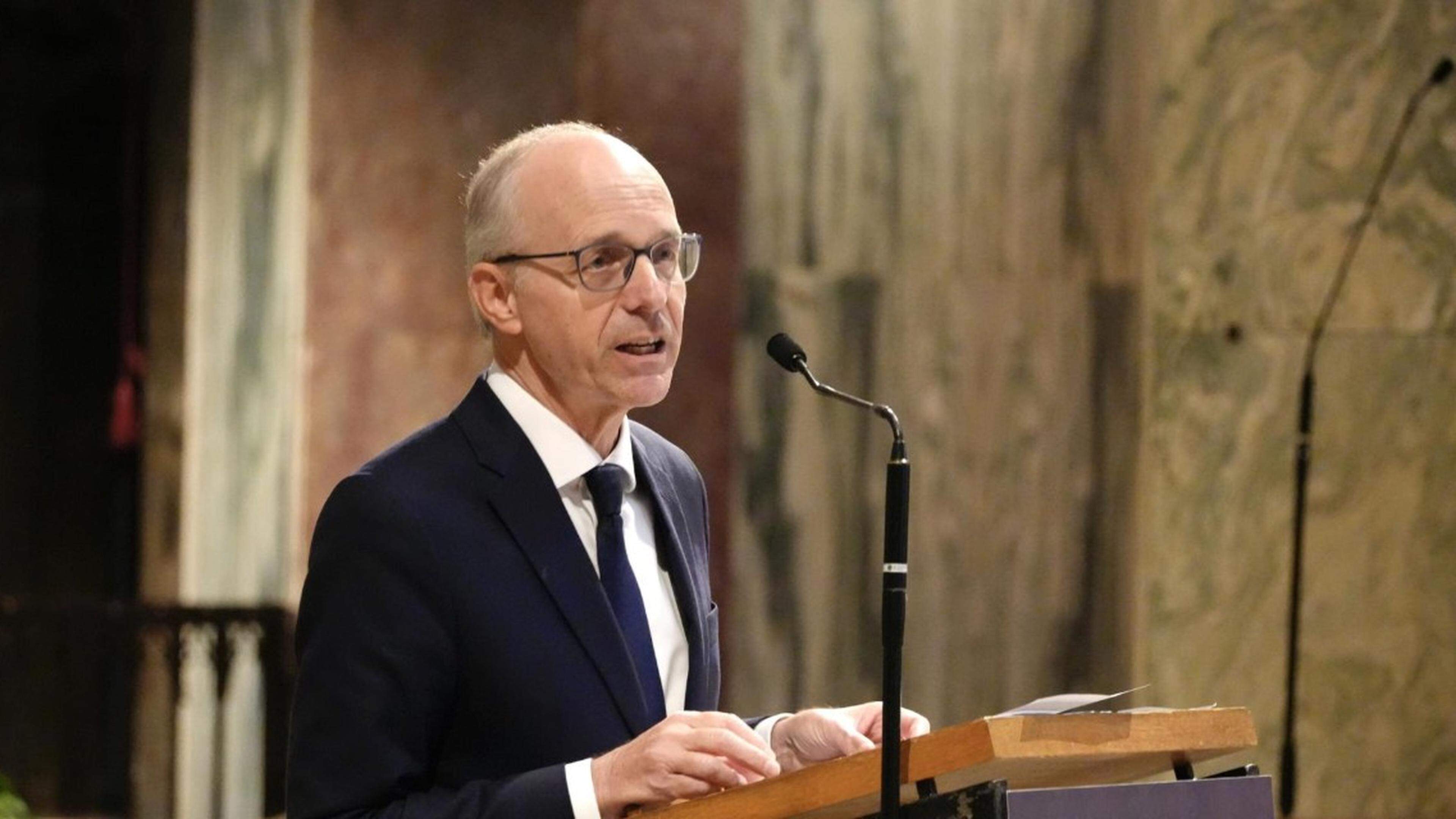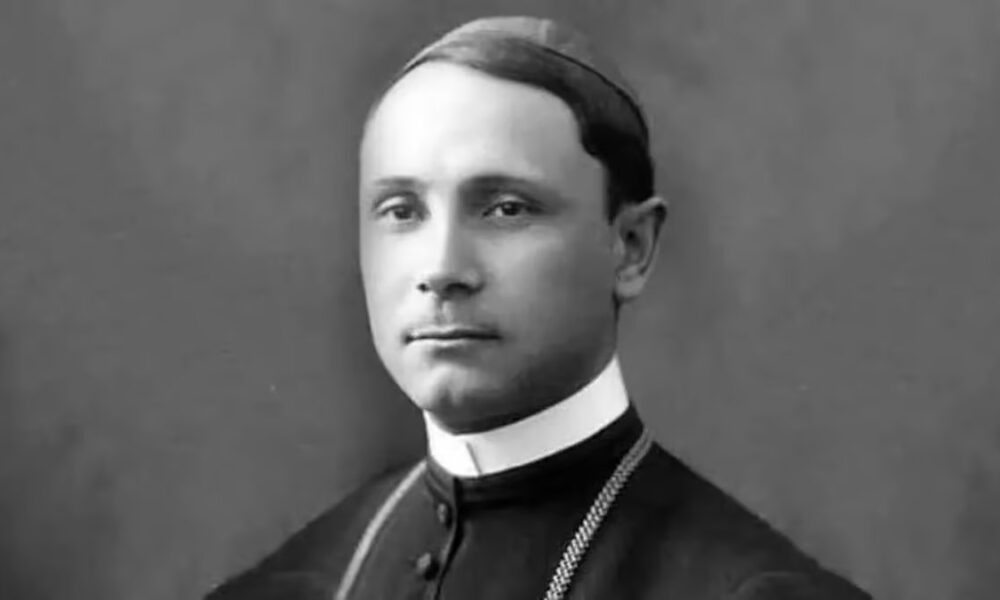Are foreign companies returning to Russia?

Three years after the Russian invasion of Ukraine, the machines for the production of washing machines and refrigerators started in a Moscow factory of the electronics group LG. For the time being tested. It is about preventing rust after several years of standstill, since there are now signs of possible war end, a spokesman for the South Korean group said Russian media.
There is also movement at the car manufacturer Hyundai. At the largest Russian online personnel procurement headhunter, the group’s subsidiaries recently switched several job advertisements. We are looking for logisticians and IT specialists.
This indicates the resumption of the Hyundais activity in Russia, the media wrote in Seoul. At the end of 2023, the group sold its car factory in Petersburg for the symbolic price of 7000 rubles (currently the equivalent of almost 80 euros) – but a buyback option secured.
Against the background of the U -turn of the White House towards Moscow, not only Asian companies reconsider the situation. « A number of CEO has traveled to Russia in the past few weeks, » says a connoisseur of the German economy. Officially, hardly anyone wants to comment from business circles. The topic is delicate in view of the sanctions that continue to apply.
Germans economically a key partner for Russia for years
The Germans were leading in Russia for a long time. The bilateral trade quickly increased after the fall of the Iron Curtain and, according to the East Committee of the German Economy, reached its peak in 2012 with more than 80 billion euros. The Russians provided raw materials, especially oil and gas, the German machines and systems.
Before the war, German companies in Russia also invested in the double -digit billion dollar area for years, even in 2022 it was even more than 18 billion euros. The reason was flourishing business despite the political uncertainty at the latest since the 2014 Crimean Anexion. The German companies are therefore reluctant to give up the highly profitable market.
The number of German companies in Russia has also dropped from 3,400 to just under 2,000 since the start of the war. The turnover has fallen even more clearly because many of the remaining people frozen their business.
The Kremlin chief recently demonstrated his certainty of victory more and more clearly – also in the economic sector.
The Germans weren’t alone when withdrawing. Most large western brands went. On the German side VW, Mercedes, Henkel, Adidas or Siemens, McDonalds, Coca-Cola, Mars, Nike, Apple, Ikea, Toyota, Sony, Samsung or the Hyundai and LG mentioned above also went.
Russia has defied sanctions
The sanctions did not bring the hoped -for effect. According to official information, Russia achieved four percent economic growth in 2024 – significantly more than the EU. Even if GDP growth came about primarily by boosting the armaments industry and saying little about the standard of living, Kremlin chief Vladimir Putin can be certain of the loyalty of most Russians.
Especially in the province, many people who have previously paid poorly pay better – through higher wages in the armaments industry, a generous payment for mercenaries in Putin’s war or the survivor’s pension for the relatives of the fallen.
The Kremlin chief recently demonstrated his certainty of victory more and more clearly – also in the economic sector. The interest of foreign companies in the return is huge and potential investors were in line, he indicated in public appearances. « Already today we have discussions about their possible return on the initiative of some of our partners – still behind closed doors -« , he said in March.
The 72-year-old, who downplayed his war of aggression against Ukraine as a « military special surgery », but who conducted western sanctions as a « economic war », said there were no discounts for returnees. On the contrary: he will ensure that domestic businesses kept advantages. Anyone who has stayed from the foreigners will be rewarded. With the others, you will see very carefully about how they would have behaved when they say goodbye.
No current plans for return
Despite the optimism that is shown in Moscow, the dream of “business as usual” will remain unfulfilled for the time being, the independent portal “The Bell” expects. A good 60 of the companies gone from Russia were asked about their sales. « We received a total of 21 answers, in none of them there is talk of clear plans for a return to Russia, » said the portal. Nokian Tyres, Ikea, Henkel, Nissan or Wintershall Dea are currently no perspective. Only three corporations – Baker Hughes, Otis and Bosch – look at the situation. But they also keep their feet still.
Only with plans to sell their business in Russia do companies take the brake after Trump’s office. This is no wonder because they hardly get anything for their Russian businesses. Anyone who withdraws from Russia may only sell a maximum of 60 percent of the low estimated value anyway. And 35 percent taxes and levies are still due.
So there is hardly anything left – and as a buyer, familiar from Putin, says an industry expert. In fact, the clan of Chechen chief Ramsan Kadyrov has in fact secured the Russian Danone daughters. Therefore, the company bosses prefer to wait and see.
Swiss block more Russian assets
Nobody wants to build new businesses. « No foreign investor would come here without government guarantees, » clarified Ulf Schneider, President of the Scheider Group consulting agency, which continues to work in Russia. Such a guarantee from Berlin is currently illusory.
Use fixed funds again
In fact, according to a case of the sanctions, the re -evaluation of the Russian market is not about transferring fresh funds from Germany, it says from the circles of the German economy. Rather, funds fixed in Russia should be created again. However, this is a lot.
Despite or precisely because of the ongoing war, German assets in Russia grow quickly. The German-Russian trade chamber estimates that there are already more than 100 billion euros. This is because capital cannot be released from Russia. So the profits remain in Russia because Moscow prevents the export of dividends.
The fact that the situation with those willing to return is not quite as rosy as represented by Russian officials even had to admit the Ministry of Finance in Moscow. So far there have been no inquiries from foreign companies to a possible return, said Vice Minister Iwan Tschebeskow.




/s3/static.nrc.nl/images/gn4/data132847763-e578ff.jpg)

